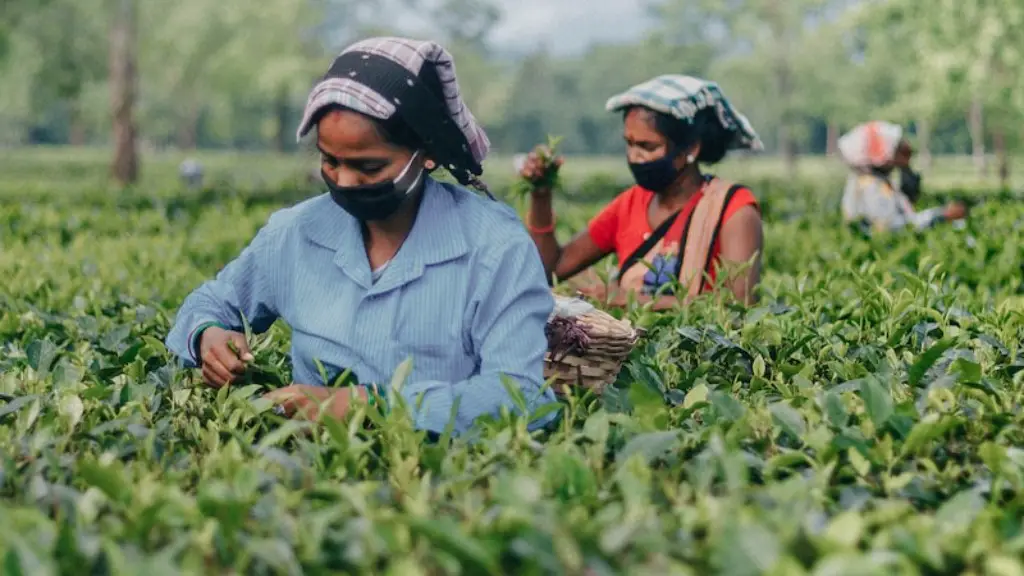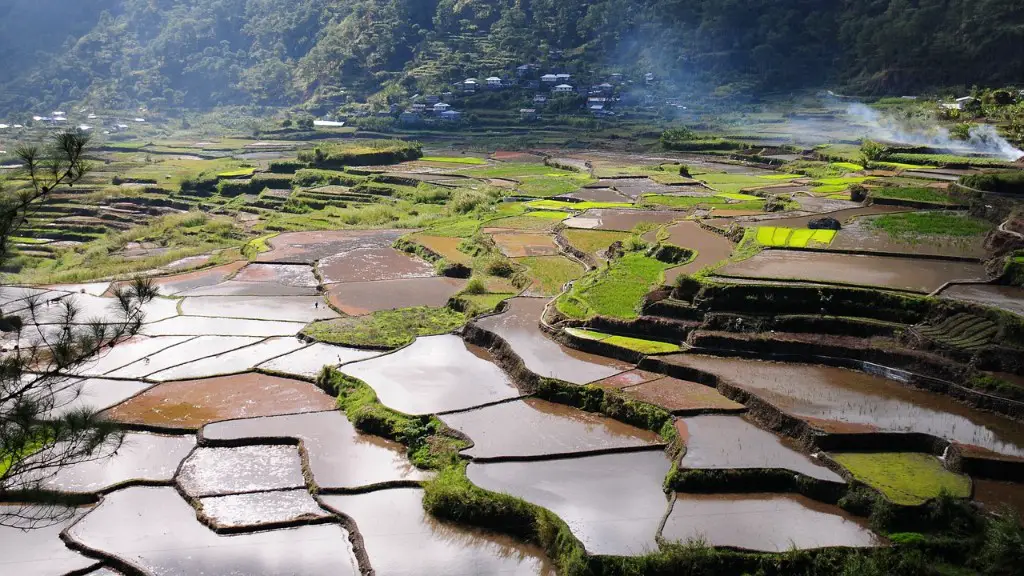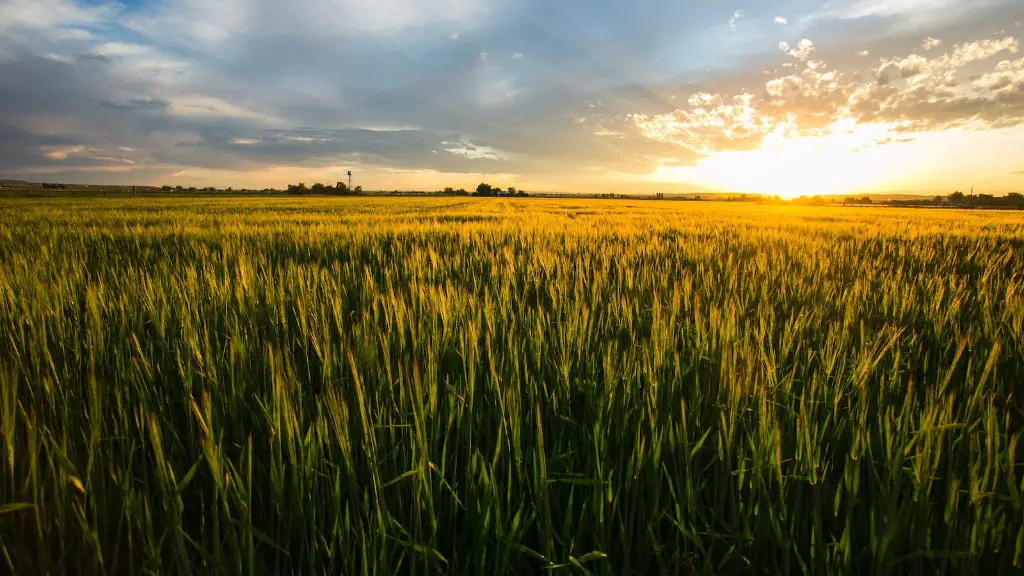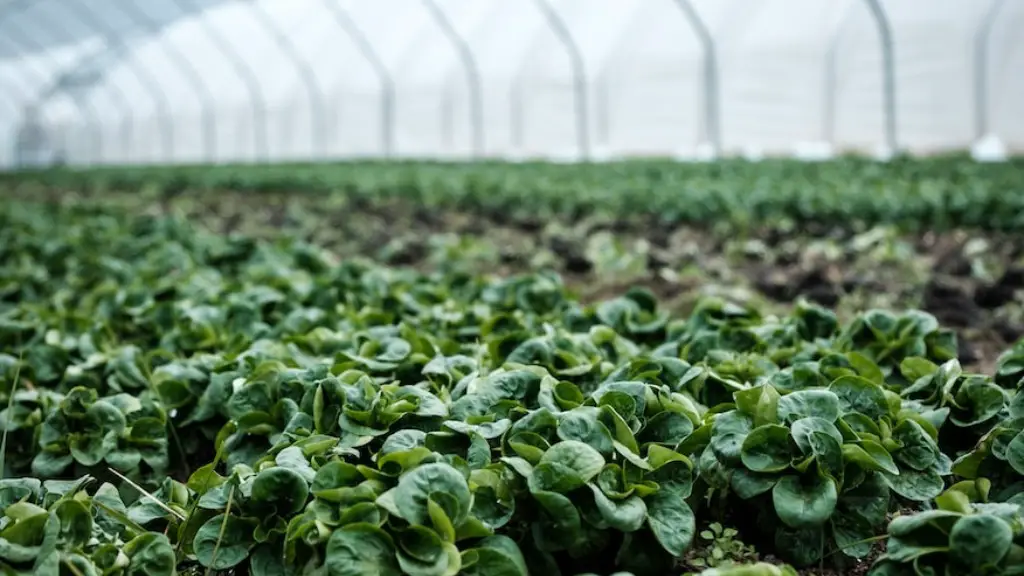The agricultural revolution was a period of rapid technological advancement in agricultural practices. This period saw the shift from hunting and gathering to early forms of agriculture, such as horticulture and pastoralism. The agricultural revolution led to the domestication of plants and animals, which allowed for the adoption of settled lifestyles. New technologies, such as irrigation and crop rotation, allowed for more efficient farming practices. The agricultural revolution had a profound impact on human society, making it possible for the world’s population to increase and for civilizations to emerge.
The new skill that made agriculture possible was the ability to cultivate and domesticated plants.
What is the future of agriculture?
Agriculture is evolving and becoming more and more sophisticated. In the future, we will see more and more advanced technologies being used in agriculture, such as robots, temperature and moisture sensors, aerial images, and GPS technology. These technologies will help make farms more profitable, efficient, safe, and environmentally friendly.
The growth of agriculture led to the development of specialized skills as people learned and noticed that they were better at one thing than at the other. Some people thought that they were better at farming, so they took that as their job and only did that job. This led to the development of a more complex society with different people doing different jobs.
What is one cost and one benefit of farming for early people
Farming was a huge undertaking for early people, but it paid off in terms of the amount of food that could be produced. Farming required a lot of time and energy, but it was worth it in terms of the benefits it provided.
There is no one answer to this question as there are a variety of factors that can contribute to the development of agriculture. However, some potential explanations could include a combination of environmental factors (such as a favorable climate for crop growth) and cultural factors (such as the development of early farming techniques). Additionally, successful commercial farmers in developed countries typically have access to a variety of resources and support systems that can help them to be successful.
How can we improve future agriculture?
There are a few measures that can help boost agricultural development in India. Firstly, efficient markets need to be established so that farmers can get a good price for their produce. Secondly, irrigation facilities need to be augmented and managed properly so that crops do not fail due to lack of water. Thirdly, agri-credit and crop insurance schemes need to be put in place so that farmers are financially secure. Fourthly, new technologies need to be adopted so that productivity is enhanced. Lastly, soil quality needs to be improved so that crops can grow well.
This is a very significant decrease in the farming population and it is likely to have a big impact on the agricultural industry. There are a number of reasons why this is happening including the mechanization of farming, the consolidation of farms, and the retirement of farmers. This is likely to lead to a decrease in the production of food and an increase in the price of food.
How has agriculture started and improved?
The domestication of plants and animals led to the development of agricultural communities approximately 10,000 years ago. By establishing domesticity, families and larger groups were able to build communities and transition from a nomadic hunter-gatherer lifestyle dependent on foraging and hunting for survival. Agricultural communities allowed for the growth of civilizations and the advancement of human knowledge and technology.
The Agricultural Revolution was a major transformation of the Neolithic Age. It allowed people to settle in one place and created surpluses of food. This meant that fewer people were needed to provide food, and other people could specialize in a variety of other skills. The Agricultural Revolution was a major step in the development of human civilization.
What knowledge and skills are developed in agriculture
Farmer skills are essential for anyone who wants to be successful in agriculture. Good problem-solving skills are crucial for finding solutions to the many challenges that farmers face on a daily basis. Interpersonal skills are important for dealing with employees, customers and other farmers. Farm management skills are necessary for keeping track of crops, livestock and equipment. Organizational skills are key for keeping the farm running smoothly.
Farm households have more wealth than the average US household because they have significant capital assets, like farmland and equipment. In 2021, the average US farm household had $2,100,879 in wealth. This is due to the fact that operating a successful farm requires a lot of capital.
What impact does agriculture have on human society?
Agriculture plays a critical role in our society and impacts us in many ways. It supports livelihoods through food production, provides habitat for wildlife, and creates jobs. It also supplies raw materials for food and other products, and is a foundation for strong economies through trade.
Agricultural production costs have increased significantly in recent years, driven largely by rising prices for energy and farm inputs. These include operator labor, machinery, taxes, asset depreciation/capital consumption, rent and interest expenses. Chemicals and fertilizer continue to make up the largest share of on-farm expenditures, while fuels remain the lowest share. This trend is expected to continue in the short to medium term.
What is the most important factor for agricultural development
Soil: The soil is a critical factor affecting agriculture, as it is the growing medium for crops. The type of Soil affects the availability of water and nutrients, as well as the ability of the Soil to support the growth of crops.
Climate: The climate is another important factor affecting agriculture, as it determines the suitability of the environment for crop growth. The temperature, rainfall, and sunlight received by the land are all important climatic factors.
Agriculture has played a pivotal role in human history, shaping the way we live and interact with our surroundings. It is estimates that agriculture first began around 12,000 years ago, and since then has slowly spread to different corners of the globe. Today, agriculture is a major part of many cultures and societies, and has had a profound impact on human development.
How has agriculture developed over time?
In a relatively short time period, American farmers have greatly increased their output without raising total input use. This change is largely due to innovations in production practices, risk management, and business arrangements. These changes have also resulted in a shift in production to larger farms.
It is clear that we need to increase food production in order to feed the world’s ever-growing population. However, simply producing more food is not enough. We need to produce more food while also ensuring that it is nutritious and of high quality.
One way to do this is by developing high-yield crops. This can be done through intensive farming methods, such as using more irrigation and fertilizers. Additionally, we need to make sure that these crops are able to reach markets, which requires reforming land ownership and creating better infrastructure.
Finally, we need to make use of technology to improve production and distribution. This includes adopting genetically modified (GM) crops and using information technology to manage data and increase efficiency.
What is modern technology in agriculture
Technology in agriculture can be used in different aspects of agriculture such as the application of herbicide, pesticide, fertilizer, and improved seed. Over the years, technology has proved to be extremely useful in the agricultural sector. With the help of technology, farmers have been able to increase their yield and productivity. Technology has also helped in reducing the cost of production.
Soil quality, water quality, climate, and terrain are just a few of the environmental issues that may impact profits and productivity for farmers in any given growing season. The type of crop being grown, the amount of rainfall, the average temperature, and the amount of sunlight can all play a role in the successful yield of a crop. Farmers must be aware of these conditions in order to make the necessary adjustments to their farming practices.
Conclusion
The new skill that made agriculture possible was the ability to domesticate plants and animals.
Agriculture is a vital part of human civilization, and it would not be possible without the skills and knowledge that allow us to cultivate land and care for crops. The development of new agricultural techniques is essential for our continued survival and prosperity, and we must continue to learn and innovate if we want to maintain our way of life.





